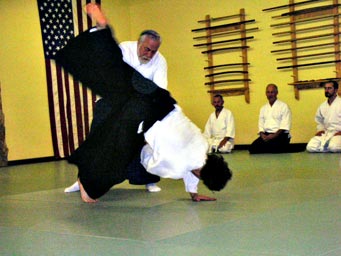More of shibui from Walter von Krenner

Walther von Krenner
More on Shibui
W.G. von Krenner
In order to avoid misunderstandings and confusion about Shibui I would like to add a few footnotes to the previous article.
Some might think that Shibui in art and objects is the lack of quality and that a cheap and simplistic item is Shibui, this is wrong.
The Japanese language has used the word Shibumi to a quality which is literally a rough or astringent taste, in other words the opposite of sweet taste.
Its adjective, Shibui, is derived from Shibu as in simple, unaffected tasty, or elegant.
None of those words, however, give more then the barest hint, if any hint at all, of what Shibui really is.
Like all transcendent qualities, the word Shibumi eludes definition. To the Japanese, those externals which soothe and satisfy the spirit are Shibumi.
These things are instinctive, not shaped by reason and not easily put into words: but Shibumi suggests art appreciation, culture, ultra-refinement, quiet taste, and a great consideration for others.
Nothing “to much” is in it, and the word is in itself a protest against ostentation.
It confirms the traditional appreciation of serenity, introspection, modesty, formality, nobility, generosity, reserve and conservatism. As the antithesis of bizarre it is opposed to everything that is garish, loud, noisy or commercial hype.
No single word in the English language exactly describes Shibumi as the Japanese understand it. The artistic and sensitive foreigner would describe Shibumi as the acme of elegance and refinement, the result of years of training and the use of restraint in the highest sense.
Japanese speak of Shibui in relation to customs, houses, rooms, decorations and art, persons, dress as well as the tone of voice. It marks the character of the proper order of things.
In short, all parts must be related to the whole, and the whole must be seemly to the place and circumstance. I have coined a word “appropriateness” (I know there is no such word in English, but it seems appropriate) describing a quality that is much lacking in our times and most people.
Shibumi is found in all the traditional and quality arts of Japan; that esoteric quality introduced into art by Zen Buddhism. It is the art that conceals art.
Perhaps a liberal translation of Shibui Konomi would be : an inherent appreciation of the elements , properly arranged and balanced, that center into art and into ones life and personality.
